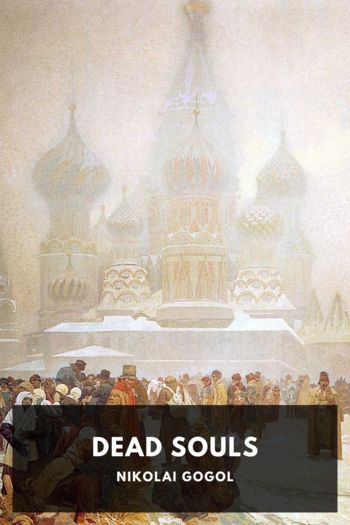Short Fiction - Nikolai Gogol (best selling autobiographies TXT) 📗

- Author: Nikolai Gogol
Book online «Short Fiction - Nikolai Gogol (best selling autobiographies TXT) 📗». Author Nikolai Gogol
Here, the devil put an end to his reflections, by asking if he was to bring him right before the Czarina? “No, I should be too afraid to go at once,” answered the blacksmith; “but I know there must be some Zaporoghians here, who passed through Dikanka last autumn on their way to Petersburgh. They were going on business to the Czarina. Let us have their advice. Now, devil, get into my pocket, and bring me to those Zaporoghians.” In less than a minute, the devil grew so thin and so small, that he had no trouble in getting into the pocket, and in the twinkling of an eye, Vakoola, (himself, he knew not how) ascended a staircase, opened a door and fell a little back, struck by the rich furniture of a spacious room. Yet, he felt a little more at ease, when he recognised the same Zaporoghians, who had passed through Dikanka. They were sitting upon silk covered sofas, with their tar besmeared boots tucked under them, and were smoking the strongest tobacco fibres.
“Good evening, God help you, your worships!” said the blacksmith coming nearer, and he made a low bow, almost touching the ground with his forehead.
“Who is that?” asked a Zaporoghian, who sat near Vakoola, of another who was sitting farther off.
“Do you not recognise me at once?” said Vakoola; “I am the blacksmith, Vakoola! Last autumn, as you passed through Dikanka, you remained nearly two days at my cottage. God grant you good health, and many happy years! It was I who put a new iron tire round one of the fore wheels of your vehicle.”
“Ah!” said the same Zaporoghian, “it is the blacksmith who paints so well. Good evening, countryman, what didst thou come for?”
“Only just to look about. They say”—
“Well, my good fellow,” said the Zaporoghian, assuming a grand air, and trying to speak with the high Russian accent, “what dost thou think of the town! Is it large?”
The blacksmith was no less desirous to show that he also understood good manners. We have already seen that he knew something of fashionable language. “The site is quite considerable,” answered he very composedly. “The houses are enormously big, the paintings they are adorned with, are thoroughly important. Some of the houses are to an extremity ornamented with gold letters. No one can say a word to the contrary: the proportion is marvellous!” The Zaporoghians, hearing the blacksmith so familiar with fine language, drew a conclusion very much to his advantage.
“We will have a chat with thee presently, my dear fellow. Now, we must go at once to the Czarina.”
“To the Czarina? Be kind, your worships, take me with you!”
“Take thee with us?” said the Zaporoghian, with an expression such as a tutor would assume towards a boy four years old, who begs to ride on a real, live, great horse.
“What hast thou to do there? No, it cannot be,” and his features took an important look. “My dear fellow, we have to speak to the Czarina on business.”
“Do take me,” urged the blacksmith. “Beg!” whispered he to the devil, striking his pocket with his fist. Scarcely had he done so, when another Zaporoghian said, “Well, come, comrades, we will take him.”
“Well, then, let him come!” said the others. “Put on such a dress as ours, then.”
The blacksmith hastily donned a green dress, when the





Comments (0)